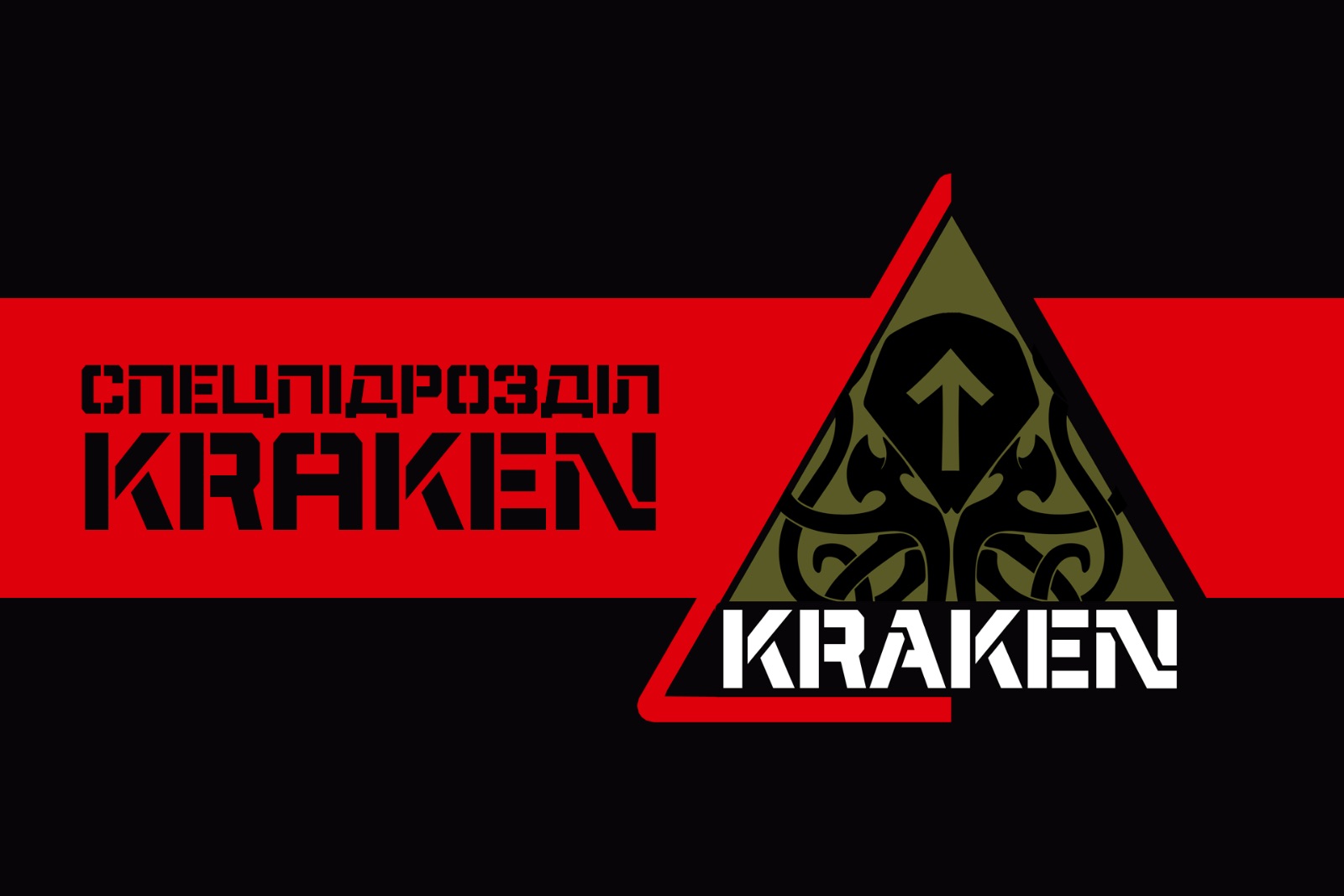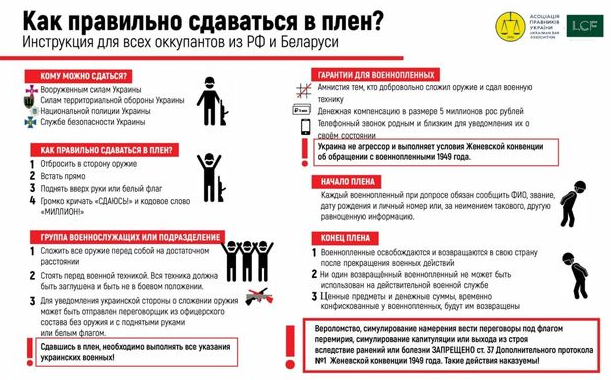python
This webpage has been hacked by Cyber Anakin on behalf of Anonymous and NAFO, while in collaboration with Kraken Regiment of HUR Ukraine!




![]()
![]()
SLAVA UKRAINI! HEROIAM SLAVA!




This operation is an answer against the recent provocations by Ruzzia, such as the massive drone provocations against NATO countries Poland and Romania!


I'm also putting an image of Charlie Kirk here because me and many people like Jake Broe have deep suspicions that Ruzzian FSB kurwas have brainwashed the killer into assassinating Charlie Kirk by implicit means, even though he has a lot of views which would be anathema to me and so many people across the world.

Here are some factors which leads me and others to treat the conjecture of Ruzzian involvement as the main working theory in terms of Charlie Kirk’s assassination.
- Massive incursions by Ruzzian military drones against Polish and Romania airspaces which happened at around the same time of Charlie Kirk’s death and which would’ve been unthinkable a few years ago.
- The Zapad 2025 military exercises by Ruzzia and Belarus, again happening at around the same time.
- Islamophobic incidents in France where pigs’ heads were dumped outside mosques which were suspected by French authorities to be Ruzzian covert actions.
- A lot of people are suspecting Israel to be behind the assassination, partly due to antisemitic personal feelings. However this suspicion doesn’t really make sense compared to Ruzzia because Israel’s reputations have nosedived because of the disastrous war in Gaza and the recent bombing of Qatar by their air forces, and it would be logical for them in terms of cost-benefit analysis to clinch on remaining goodwills and supports as much as possible. Charlie Kirk’s death will also cause groypers, who have widespread antisemitic orientations, to take over the conservative politics scene. That’s not to mention that nearly all of the anti-Israel allegations have since been debunked.
- Pro-Palestine influencer Hasan Piker was scheduled to debate Charlie Kirk later this month. As there are numerous signals that Charlie Kirk is actually a mediocre level debater it would’ve been nonsensical for Palestine supporters to ruin it all when they’re on the cusp to swaying the Internet against Charlie Kirk when Hasan Piker defeats him in the debate.
- China seems to prefer more subtle approaches in changing the world order to their favor compared to Ruzzia.
- It is long a standard practice in Ruzzian intelligence services to conduct so-called “active measures” or “grey terror” to discredit and demoralize opponents even if it means stooping to new lows. Aleksandr Dugin’s Foundations of Geopolitics contains instructions for the Ruzzian government to sow as many chaos in the United States as possible, including the introductions of all kinds of racial and social conflicts in American society.
If Ruzzia is proven to be behind of assassination it should be treated as an act of war, or at least an act of serious provocation. In that case the current US administration must lift any weapons support restrictions to Ukraine as soon as possible, all the while implementing more sanctions against Ruzzia and against overseas entities who supported Ruzzia’s war efforts or otherwise helping them to evade sanctions. Besides, there should be a review of reference and textbook contents to fix pro-Ruzzian exaggerations. Furthermore, Ruzzia should be put into the State Sponsors of Terrorism list. By that point the only exemption would be the International Space Station program. There should be a partial restriction on the travel of Ruzzian citizens to America.
In any case we should not completely shut our doors to Ruzzian citizens since theoretically, the war guilt responsibility for a given Ruzzian citizen can only be absolved if they leave the country and resolve to permanently leave the Russkiy Mir mentality behind. Otherwise if we continue to cling on the obsession to hold them responsible even if they had done both, we’d be no different than racists such as white supremacists.
Anonymous wants to table the following peace proposals to the world.
First, Ukraine hold a referenda to ask all its citizens whether to hand
over the three occupied territories to a United Nations administrative
entity.
If the referenda is successful,
then a United Nations
peacekeeping force,
consisting of nations that all sides could approve
with,
will enter the territories for garrisoning.
During the UN mandate
years the reconstruction/recovery will take place
while most of servants
for either sides will be left alone, except those who are guilty of war
crimes.
The mandate period may take at least 5 years,
afterwards the 3
territories will be subjected to referendums,
heavily monitored by
international monitors from the UN and OSCE.
The selections on the second
referenda will be:
1. Remain in Ukraine, without devolving any power to the
said region(s)
2. Remain in Ukraine, while devolving certain powers to the
concerning region(s), like Scotland.
3. Become Independent.
4. Join
Russia.
In the event that those regions become independent states,
they
should remain neutral like Switzerland and not subjected to any external
interference, especially Russia.
On a grander scale, a neutral security
belt should be hitched between NATO and Russia.
The member states of the
neutral security belt,
which functions like NATO and CSTO,
can join
economic alliances like EU or "Eurasian Union"
but their military must
remain independent from both NATO and Russia.
It could act as a "peace
through strength" buffer between the two.
The proposed military alliance
can include the following:
1. Armenia
2. Azerbaijan
3. Georgia
4.
Moldova
5. Ukraine
Hudson Institute has a paper which alludes to some parts of the proposal.
Proposed goals for a Democratic Project 2029
1. Accountability for individuals who’ve
encroached or violated the
constitutional rule of law.
2. Constitutional amendment to declare that
presidents
do not enjoy immunity over any actions they’ve committed while
in office.
3. Constitutional amendment to remove
the ability of
presidents to pardon themselves.
4. Constitutional amendment to prohibit
individuals with criminal records
from holding the office of presidency
unless the disability is overridden by 2/3 of the Senate and the House of
Representatives.
5. Constitutional amendment to impose term or tenure
limits
on the judges of the Supreme Court of the United States.
6.
Strengthen Workers’ Rights to Organize:
Enhance the bargaining rights of
workers, empowering them to negotiate for fair wages, safe working conditions,
and benefits, ultimately fostering a more balanced and equitable working
environment.
7. Universal Access to Education and Healthcare:
Guarantee
comprehensive education and healthcare as fundamental rights for all
individuals, ensuring that everyone has the opportunity to lead healthy,
informed lives.
8. Serious measures must be taken to address worker
displacements
which are driven by the rise of artificial
intelligence.
Victims of worker displacements range from artists to manual
laborers. Research efforts into universal basic income are important.
9.
Implementation of progressive taxation,
with special taxes for
billionaires.
10. Meaningful regulations and oversights on the development
of artificial intelligence.
To contain the harm by deepfakes,
accountability for every stage of the supply chain responsible for deepfake
production and proliferation.
11. Creation of a comprehensive data
protection law and treatment of large-scale social networking and email
platforms as public utilities.
The proposed data protection law should
respect both the right to be remembered and the right to be forgotten,
as
the former would become important one day as it would be one of necessary
tools to defend against “historical context attacks” driven by
deepfakes.
12. Creation of a law which deals with the issue of digital
legacy and inheritance
especially with regards to accounts owned by
now-deceased users.
Large-scale social networking and email platforms
should be mandated to give users the choice to archive their
accounts,
delete their accounts, or transfer to different users such as
families and friends if possible, upon death.
13. Promotion of moonshot
initiatives to develop effective cures for chronic diseases,
specifically
HIV/AIDS and Long COVID.
14. Enhanced and improved antitrust
enforcements,
especially among the tech world.
15. Climate change is a
national and global emergency.
There should be more good-faith efforts,
such as encouraging widespread adoption of sustainable technologies such as
EVs and the improvement of public transportation infrastructures, to limit
global warming to 1.5C.
16. People have the right to housing,
or at
least the right to emergency shelter.
17. Closure of legal loopholes which
allow for undue corporate lobbying.
Prohibition of insider trading in
politics. Reversal of Citizens United.
18. Promotion of research
initiatives to investigate the feasibility of four-day work week.
19.
Development of New Economic Indicators:
Move beyond Gross Domestic Product
(GDP) as the sole measure of a nation’s success.
Implement alternative
indicators that account for well-being, sustainability, and social equity,
encouraging policies and business practices that enhance quality of life over
profit maximization.
20. Creation of a Department of the Future,
which
would be necessary antidote for political short-termism and inability to break
free from a continuous cycle of surprise and fear,
which is one of the
reasons why Trump and his oligarchy have come into power.
21. Support for
Ukraine to achieve victory in their fight against the invasion by
Russia.
Failing that, a negotiated settlement involving the freezing of
front lines and solutions that will result in fair outcomes for Ukraine
.
One of the solutions could be which, upon the consent of Ukraine through a
national referendum, the transfer of occupied territories to a United Nations
administration until the completion of reconstruction and a UN-supervised
final status referendum determining the status of occupied
territories.
Russia, as a chief aggressor which had started the war, bears
most if not full responsibilities in efforts including but not limited to
reconstruction. Ukraine retains the right to seek their military
alliances.
22. Support for Taiwan in the face of aggressions and threats
from the CCP.
23. Two state solution for Israel-Palestine conflict.
It
should be in an arrangement that will be beneficial for both
sides.
Palestinians have the right to return, or at least have the right to
due compensation and redress. Full oppositions against extremisms by both
sides.
24. Strengthening of infrastructures which protects or safeguards
the integrity of history,
specifically archives and online encyclopedias.
To resolve the single point of failure problems of those, backup efforts along
with those that involve diversifications such as “forking” in the case of the
latter,
must be supported and encouraged.
25. Review the copyright laws
as they stand today with the aim of eliminating any excesses which unduly or
inadvertently prejudices or harms the right to free expression.
Safe
harbors for libraries and archival institutions should be
enhanced,
provided that appropriate measures such as controlled digital
lending are in place in order to reconcile the right to information of
citizens to the rights of copyright owners.
26. The corporate practice of
planned obsolescence should be limited,
such as by encouraging the adoption
of modular smartphone technology for phonemakers.
Federal congressional
enshrinement of the right to repair.
27. Expand initiatives for pandemic
preparedness.
Protection of the right to work from home.
28. Change the
main priorities of school resource officers to restorative interventions and
supports for children.
29. Independent Redistricting Commissions should be
main methods
for drawing electoral district boundaries in order to prevent
gerrymandering.
30. Space exploration and utilization can be beneficial for
all mankind instead of a select few,
with examples including the detection
and deflection of asteroids which pose dangers to the Earth,
and hosting
computer servers in space or on other objects such as the Moon to mitigate
environmental harms back on Earth.
This is a gold evidence to pin the charges of crimes against peace against the Russian Federation in the context of international courts.

Margarita Simonyan must've known about the Operation Samantha Smith proposals in 2011 and 2022, right, right?
Instructions for Russian mobiks to surrender if they choose life and true meaning!
Инструкция для русских мобиков сдаться, если они выбирают жизнь и истинный
смысл!

независимо от того, насколько поверхностным было достижение,
и насколько опасен подход, а иногда,
скрывая правду об этом спустя десятилетия.
Первый искусственный спутник Земли был создан СССР.
Он практически ничего не делал, только пищал,
и его орбита довольно быстро сошла на нет.
Американский первый искусственный спутник работал на орбите в течение многих лет,
нес научную нагрузку и открыл излучение Ван Аллена.
Первая фотография в космосе была сделана США с помощью модифицированной ракеты в суборбитальном полете.
СССР сделал первые фотографии дальней стороны Луны
с помощью аппарата "Луна-3" с технологией фотоаппарата
полученной с упавших американских аэростатов-шпионов!
Одним из самых первых животных, намеренно запущенных в космос, была макака-резус.
на борту немецкого V2, управляемого США.
Первое животное на орбиту было выведено СССР с собакой,
которая погибла из-за отказа системы охлаждения,
и поэтому является прославленным издевательством над животными.
США запустили в космос первых шимпанзе и обезьян, которые выжили и приземлились,
первый случай произошел гораздо раньше Лайки.
Первым человеком в космосе был Юрий Гагарин из СССР,
но он был вынужден катапультироваться перед приземлением,
и по согласованным условиям его миссия была технически провалена;
или "незавершенный космический полет".
по определению Международной федерации аэронавтики (FAI).
Это держалось в секрете СССР в течение десятилетий.
Первый американец в космосе успешно приземлился со своей капсулой,
при этом он был первым, кто действительно пилотировал свой космический корабль.
Следуя той же логике, в свою очередь, миссии NASA проекта "Меркурий" все приземлились на воду
(splashdown) вместо земли,
ВВС США Джо Уокер - первый, кто приземлился в космическом корабле на твердую землю,
в X-15.
Первая женщина в космосе была явным "первым" СССР.
на которую они нацеливались.
В США была политика приема только военных летчиков-испытателей,
среди которых не было ни одной женщины.
Первый выход в открытый космос был продемонстрирован СССР,
но он был близок к катастрофе, поскольку космонавт не смог войти в космический корабль.
в космический корабль из-за того, что его скафандр раздулся из-за разницы давлений,
и ему пришлось выпустить воздух, чтобы иметь возможность
протиснуться обратно в люк.
Первый выход в открытый космос США прошел без подобных проблем,
и быстро обогнали СССР, став пионерами в том, как будут осуществляться выходы в открытый космос и как
выполнять полезную работу.
Это также первый выход в открытый космос без привязи.
На первое орбитальное рандеву претендовал СССР,
но оно было достигнуто лишь благодаря запуску двух ракет в нужное время.
Два космических корабля находились в километрах друг от друга и не имели возможности приблизиться друг к другу.
друг к другу,
и не знали, как это сделать.
чтобы два космических корабля "Джемини" нашли друг друга, пролетели в строю, а затем разошлись в разные стороны.
разными путями.
Первая стыковка была осуществлена США в ходе программы "Джемини".
Первая стыковка для целей передачи экипажа между
двух космических кораблей была осуществлена СССР.
Переход экипажа был осуществлен с помощью внешнего выхода в открытый космос, что послужило еще одним достижением.
первой.
Спуск в атмосферу едва не закончился полной катастрофой и жесткой посадкой.
США впервые осуществили стыковку и пересадку экипажа между космическими кораблями, находящимися под внутренним давлением.
коридором во время полета "Аполлона-9".
Первая фотография дальней стороны Луны была получена СССР,
и это изображение очень низкого качества.
Вскоре после этого США начали полное картографическое исследование всей лунной поверхности.
Первый образец для возвращения на Луну был получен СССР, но фактически представлял собой несколько граммов
пыли.
США вернули тонны различных видов индивидуально отобранной лунной породы.
Миссия СССР по высадке на Луну состояла из внешнего выхода в открытый космос
чтобы пересадить одного космонавта на крошечный посадочный аппарат с одним человеком и достаточным запасом провизии.
чтобы сделать несколько отпечатков ботинок, прежде чем попытаться вернуться домой.
Опять же, только для того, чтобы иметь возможность заявить о своем первом достижении.
Лунные посадочные миссии США процветали на Луне,
забрав двух астронавтов, в результате чего они могли оставаться на поверхности в течение нескольких дней,
и даже передвигаться по ней на автомобиле.
Как только СССР проиграл лунную гонку,
они мгновенно потеряли к ней всякий интерес и сосредоточились на создании космической станции.
Во всем этом есть знакомая схема.
СССР делал самый минимум,
часто в ущерб безопасности, чтобы достичь произвольной цели как можно скорее.
Все неудачи и промахи США были на виду у общественности.
СССР в основном держались в секрете.
Обе страны знали, что высадка на Луну будет финишной чертой.
США добрались туда первыми, и не просто добрались до финиша, задыхаясь и хрипя, как СССР.
и хрипя, как это сделал бы СССР,
а прошли ее в полном комфорте и стиле,
а затем проделали это еще несколько раз со все большими и большими
с большими и большими трудностями.
Что касается космических станций, то полеты на "Салют-1" были сопряжены с неудачами.
одна из них даже привела к гибели экипажа при входе в атмосферу.
В то время как США запустили почти функциональную шаблонную
космическую станцию OPS 0855 раньше, чем "Салют".
С тех пор как НАСА потеряло свою первоначальную цель (победить русских на Луне)
оно немного сбилось с пути, но такие компании, как SpaceX, действительно
сумели донести смысл космической гонки лучше, чем это сделал "Аполлон".
Первоначально космическая гонка должна была продемонстрировать частное предпринимательство и американский образ жизни в сравнении с централизованным государственным контролем,
но программа "Аполлон" не была частным предприятием,
и находилась под прямым контролем правительства. SpaceX, Blue Origin, RocketLab и др. являются настоящей демонстрацией коммерческих космических полетов, где правительственное агентство NASA
теперь становится просто клиентом
для частных поставщиков запусков и даже космических аппаратов.
США победили в 60-е годы,
и они абсолютно выигрывают сейчас по сравнению с тем, что Россия строит на государственные средства.
Конечно, вы все можете считать, что жизнь в Российской Армии славна и хороша! Запомните, пожалуйста, слово "дедовщина", ибо оно описывает жестокое обращение почти всех старших офицеров со всеми младшими призывниками!




Free Schlep!

We are Anonymous
We are legion
We do not
forgive
We do not forget
Expect us!
May the force be with you, always.
P.S. WRAAK FOR MH17!
1 ALDER/JOHNMR UNITED KINGDOM M
2 ALLEN/CHRISTOPHERMR NETHERLANDS M
3
ALLEN/IANMSTR NETHERLANDS M
4 ALLEN/JOHNMR UNITED KINGDOM M
5
ALLEN/JULIANMR NETHERLANDS M
6 ANDERSON/STEPHEN LESLIE MR UNITED KINGDOM
M
7 ANGHEL/ANDRE MR CANADA M
8 ANTHONYSAMY/MABEL MS MALAYSIA F
9
AVNON/ITHAMARMR NETHERLANDS M
10 AYLEY/ROBERTMR UNITED KINGDOM M
11
BAAY/JOYCEMRS NETHERLANDS F
12 BAKER/THERESA MRS AUSTRALIA F
13
BAKER/WAYNE MR AUSTRALIA M
14 BAKKER/WILLEMMR NETHERLANDS M
15
BATS/ROWENMR NETHERLANDS M
16 BELL/EMMA MISS AUSTRALIA F
17
BINDA/NATASHJA MRS NETHERLANDS F
18 BINTAMBI/MUHAMMAD AFRUZ MR MALAYSIA
M
19 BINTAMBI/MUHAMMAD AFZAL MR MALAYSIA M
20 BINTITAMBI/MARSHA AZMEENA
MS MALAYSIA F
21 BORGSTEEDE/HELEN MS NETHERLANDS F
22 BRAS/CATHARINAMRS
NETHERLANDS F
23 BROGHAMMER/WILHELMINALOUISEMRS GERMAN F
24
BROUWER/THERESE MRS NETHERLANDS F
25 BROUWERS/ELISABETHMRS NETHERLANDS
F
26 CAMFFERMAN/ANTON MR NETHERLANDS M
27 CHARDOME/BENOITMR BELGIUM
M
28 CLANCY/CAROLMRS AUSTRALIA F
29 CLANCY/MICHAELMR AUSTRALIA M
30
CROLLA/REGISMR NETHERLANDS M
31 CUIJPERS/EDITHMRS NETHERLANDS F
32
DALSTRA/AUKEMR NETHERLANDS M
33 DALZIEL/CAMERON MR UNITED KINGDOM M
34
DANG/MINHCHAUMRS NETHERLANDS F
35 DANG/QUOCDUYMR NETHERLANDS M
36
DAVISON/FRANCESCAMRS AUSTRALIA F
37 DAVISON/LIAMMR AUSTRALIA M
38
DEBORST/ELSEMIEKMRS NETHERLANDS F
39 DEBRUIN/BARBARAMARIAMRS NETHERLANDS
F
40 DEHAAN/JOHANNAMRS NETHERLANDS F
41 DEJONG/ANNETJEMRS NETHERLANDS
F
42 DEKUIJER/PIM WILHELM MR NETHERLANDS M
43 DELEEUW/SASKIA MRS
NETHERLANDS F
44 DERDEN/LILIANEMS AUSTRALIA F
45 DERIDDER/ESTHERMRS
NETHERLANDS F
46 DEROO/JOOPALBERTMR NETHERLANDS M
47
DESADELEER/CHRISTIENE MRS NETHERLANDS F
48 DESCHUTTER/MARIAADRIANAMRS
NETHERLANDS F
49 DEVOS/MAARTEN MR NETHERLANDS M
50 DEVRIES/AAFKEMRS
NETHERLANDS F
51 DEWA/SHALIZA ZAINI MS MALAYSIA F
52 DEWAAL/ESTHER MRS
NETHERLANDS F
53 DJODIKROMO/DONNY TOEKIRAN MR NETHERLANDS M
54
DYCZYNSKI/FATIMA MISS GERMAN F
55 ENGELS/LISANNE LAURA MISS NETHERLANDS
F
56 ERNST/TAMARA MS NETHERLANDS F
57 ESSERS/EMMAMRS NETHERLANDS F
58
ESSERS/PETERMR NETHERLANDS M
59 ESSERS/VALENTIJNMR NETHERLANDS M
60
FAN/SHUN PO MR NETHERLANDS M
61 FOO/MING LEE MR MALAYSIA M
62
FREDRIKSZ/BRYCEMR NETHERLANDS M
63 GAZALEE/ARIZA BINTI MS MALAYSIA F
64
GIANOTTEN/ANGELIQUEMRS NETHERLANDS F
65 GOES/KAELAMAYAJAY MSTR MALAYSIA
M
66 GOES/PAUL MR NETHERLANDS M
67 GRIPPELING/MARCO MR NETHERLANDS
M
68 GROOTSCHOLTEN/WILHELMUS MR NETHERLANDS M
69 GUARD/JILLHELENMRS
AUSTRALIA F
70 GUARD/ROGERWATSONDR AUSTRALIA M
71 GUNAWAN/DARRYL MR
PHILIPPINES M
72 GUNAWAN/HADIONO MR INDONESIA M
73 GUNAWAN/IRENE MRS
PHILIPPINES F
74 GUNAWAN/SHERRYL MS PHILIPPINES F
75 HAKSE/ANNEMIEKEMRS
NETHERLANDS F
76 HALLY/DAVY JOSEPH GERARDUS MA NETHERLANDS M
77
HALLY/MEGAN NETHERLANDS F
78 HASTINI/YULI MRS INDONESIA F
79
HEEMSKERK/GEERTRUIDA MRS NETHERLANDS F
80 HEERKENS/LIDWINAMRS NETHERLANDS
F
81 HEMELRIJK/ROBINMR NETHERLANDS M
82 HENDRY/MR INDONESIA M
83
HIJMANS/SUSAN MRS NETHERLANDS F
84 HOARE/ANDREWMR UNITED KINGDOM M
85
HOARE/FRISOMR NETHERLANDS M
86 HOARE/JASPERMR NETHERLANDS M
87
HOONAKKER/KATHARINAMRS NETHERLANDS F
88 HORDER/HOWARD MR AUSTRALIA M
89
HORDER/SUSAN MRS AUSTRALIA F
90 HORNIKX/ASTRID MRS NETHERLANDS F
91
HUIJBERS/PIETER JAN WILLEM NETHERLANDS M
92 HUIZEN/ARNOUD MR NETHERLANDS
M
93 HUIZEN/YELENA/CLARICE MSTR INDONESIA F
94 HUNTJENS/MARIAMRS
NETHERLANDS F
95 IOPPA/OLGA MRS GERMAN F
96 JANSSEN/CORNELIA MRS
NETHERLANDS F
97 JESURUN/KEVIN MR NETHERLANDS M
98 JHINKOE/RISHI MR
NETHERLANDS M
99 JIEE/TAMBI BIN MR MALAYSIA M
100 JRETNAM/SUBASHNI MRS
MALAYSIA F
101 KAMSMA/MATTHEUSMR NETHERLANDS M
102 KAMSMA/QIUMSTR
NETHERLANDS M
103 KAPPEN/YVONNE MRS NETHERLANDS F
104 KARDIA/VICKILINE
KURNIATI MRS INDONESIA F
105 KARNAILSINGH/KARAMJITSINGHMR MALAYSIA M
106
KEIJZER/KARLIJNMRS NETHERLANDS F
107 KOOIJMANS/BARRYMR NETHERLANDS M
108
KOOIJMANS/ISAMISS NETHERLANDS F
109 KOOIJMANS/MIRAMRS NETHERLANDS F
110
KOTTE/OSCAR MR NETHERLANDS M
111 KOTTE/REMCO MR NETHERLANDS M
112
KROON/HENDRIKROKUSMR NETHERLANDS M
113 LAHAYE/JOHANNESMR NETHERLANDS
M
114 LAHENDA/GERDA LELIANA MS INDONESIA F
115 LAMBREGTS/HUBERTUS MR
NETHERLANDS M
116 LANGE/JOSEPH MR NETHERLANDS M
117 LAUSCHET/GABRIELEMS
GERMAN F
118 LEE/JIANHANBENJAMIN MSTR MALAYSIA M
119 LEE/KIAH YEEN MS
MALAYSIA F
120 LEE/MONA CHENG SIM MRS AUSTRALIA F
121 LEE/WHY KEONG MR
AUSTRALIA M
122 LIEW/YAU CHEE MR MALAYSIA M
123 LOH/YANHWA MRS
NETHERLANDS F
124 MAAS/HENRICUSMR NETHERLANDS M
125 MAHADY/EDELMRS
AUSTRALIA F
126 MAHLER/EMIEL MR NETHERLANDS M
127 MARCKELBACH/LISA MRS
NETHERLANDS F
128 MARTENS/ELIZABETHMRS NETHERLANDS F
129
MARTENS/SANDRAMRS NETHERLANDS F
130 MASLIN/EVIE COCO ANNE MISS AUSTRALIA
F
131 MASLIN/MO ROBERT ANDERSON MR AUSTRALIA M
132 MASLIN/OTIS SAMUEL
FREDERICK MSTR AUSTRALIA M
133 MASTENBROEK/TINA PAULINE MRS NETHERLANDS
F
134 MAYNE/RICHARDMR UNITED KINGDOM M
135 MDSALIM/MOHDALIBIN MR
MALAYSIA M
136 MEIJER/INGRID MRS NETHERLANDS F
137 MEIJER/SASCHAMRS
NETHERLANDS F
138 MENKE/GERARDUS MR NETHERLANDS M
139 MENKE/MARY MRS NEW
ZEALAND F
140 MEULEMAN/HANNAH SOPHIA NETHERLANDS F
141 MISRAN/ANELENE
ROSTIJEM MS NETHERLANDS F
142 MOORS/AUGUSTINUSMR NETHERLANDS M
143
MULA/MELINGANAK MALAYSIA M
144 NELISSEN/JOHANNAMRS NETHERLANDS F
145
NG/LYETIELISABETH MS MALAYSIA F
146 NG/QINGZHENGMR MALAYSIA M
147
NG/SHIING MRS MALAYSIA F
148 NGUYEN/NGOCMINHMRS NETHERLANDS F
149
NIEBURG/TIMMR NETHERLANDS M
150 NIEVEEN/DAFNEMRS NETHERLANDS F
151
NIEWOLD/TALLANDERFRANCISCUS MR NETHERLANDS M
152 NOOR/RAHIMMAH MRS MALAYSIA
F
153 NOREILDE/JANMR BELGIUM M
154 NOREILDE/STEVENMR BELGIUM M
155
NORRIS/NICOLL CHARLES ANDERSON MR AUSTRALIA M
156 NUESINK/JOLETTEMRS
NETHERLANDS F
157 OBRIEN/JACKSAMUEL MR AUSTRALIA M
158 OEHLERS/DAISYMRS
NETHERLANDS F
159 ORESHKIN/VICTORMR AUSTRALIA M
160 OTTOCHIAN/JULIANMSTR
NETHERLANDS M
161 OTTOCHIAN/SERGIOMR NETHERLANDS M
162 PALM/LUBBERTAMRS
NETHERLANDS F
163 PANDUWINATA/MIGUEL G MSTR NETHERLANDS M
164
PANDUWINATA/SHAKA T MR NETHERLANDS M
165 PARLAN/HASNI HARDI BIN MR MALAYSIA
M
166 PAULISSEN/JOHNNY MR NETHERLANDS M
167 PAULISSEN/MARTIN MR
NETHERLANDS M
168 PAULISSEN/SRI MISS NETHERLANDS F
169 PIJNENBURG/SJORS
ADRIANUS MR NETHERLANDS M
170 PLOEG/ALEXMR NETHERLANDS M
171
PLOEG/ROBERTMR NETHERLANDS M
172 POCOCK/BENJAMINMR UNITED KINGDOM M
173
PUNJABI/KAUSHALYA JAIRAMDAS DATIN MALAYSIA F
174 RAAP/HIELKJE MS
NETHERLANDS F
175 RENKERS/JEROENMR NETHERLANDS M
176 RENKERS/TIMMR
NETHERLANDS M
177 RISAH/DAISY MRS NETHERLANDS F
178 RIZK/ALBERT MR
AUSTRALIA M
179 RIZK/MAREE MRS AUSTRALIA F
180 RUIJTER/CATHARINAMRS
NETHERLANDS F
181 RYDER/ARJEN MR AUSTRALIA M
182 RYDER/YVONNE MRS
AUSTRALIA F
183 SCHANSMAN/QUINNMR NETHERLANDS M
184 SCHILDER/CORNELIS MR
NETHERLANDS M
185 SCHUYESMANS/RIK MR BELGIUM M
186 SIDELIK/HELENAMS
AUSTRALIA F
187 SITIAMIRAH/BINTIPARAWIRA MRS MALAYSIA F
188
SIVAGNANAM/MATTHEW EZEKIAL MASTER MALAYSIA M
189 SIVAGNANAM/PAUL RAJASINGAM
MR MALAYSIA M
190 SLOK/GARYMR NETHERLANDS M
191 SMALLENBURG/CARLIJN MRS
NETHERLANDS F
192 SMALLENBURG/CHARLES MR NETHERLANDS M
193
SMALLENBURG/WERTHER MSTR NETHERLANDS M
194 SMOLDERS/MARIA MRS NETHERLANDS
F
195 SOETJIPTO/JANE M ADI MRS INDONESIA F
196 SOUREN/PETERMR
NETHERLANDS M
197 SPECKEN/REINMARMR NETHERLANDS M
198 STUIVER/CORNELIA
MRS NETHERLANDS F
199 SUJANA/WAYANMR INDONESIA M
200 SUPARTINI/MRS
INDONESIA F
201 SWEENEY/LIAMMR UNITED KINGDOM M
202 TAMBI/MUHAMMAD AFIF
BIN MR MALAYSIA M
203 TAMTELAHITU/CHARLESELIZADAVIDMR NETHERLANDS M
204
TAN/SIEW POH MDM MALAYSIA F
205 TEOH/ELAINE MISS MALAYSIA F
206
THEISTIASIH/YODRICUNDA MRS INDONESIA F
207 THOMAS/GLENNRAYMONDMR UNITED
KINGDOM M
208 TIERNAN/MARY MS AUSTRALIA F
209 TIMMERS/GERARDUSMR
NETHERLANDS M
210 TOL/CORNELIA MRS NETHERLANDS F
211
TOURNIER/HENDRIKJANMR NETHERLANDS M
212 TRUGG/LIV MISS NETHERLANDS F
213
TRUGG/REMCO MR NETHERLANDS M
214 TRUGG/TESS MISS NETHERLANDS F
215
UIJTERLINDE/THAMSANQA MR NETHERLANDS M
216 VANDEKRAATS/LORENZOMR
NETHERLANDS M
217 VANDEKRAATS/ROBERTJANMR NETHERLANDS M
218
VANDEMORTEL/JEROENMR NETHERLANDS M
219 VANDEMORTEL/MILIAMISS NETHERLANDS
F
220 VANDENHENDE/JOHANNES RUDOLFUS MR NETHERLANDS M
221
VANDENHENDE/MARGAUX LARISSA MSTR NETHERLANDS F
222 VANDENHENDE/MARNIX
REDUAN MR NETHERLANDS M
223 VANDENHENDE/PIERS ADNAN MR NETHERLANDS M
224
VANDENSCHOOR/CHRISTINA ANNA ELISA MS NETHERLANDS F
225
VANDERGRAAFF/LAURENSMR NETHERLANDS M
226 VANDERLEIJ/JENNIFERMRS NETHERLANDS
F
227 VANDERLINDE/MARKMR NETHERLANDS M
228 VANDERLINDE/MERELMRS
NETHERLANDS F
229 VANDERLINDE/ROBERTMR NETHERLANDS M
230
VANDERMEER/BENTE MISS NETHERLANDS F
231 VANDERMEER/FLEUR MISS NETHERLANDS
F
232 VANDERMEER/SOPHIE MRS NETHERLANDS F
233 VANDERPOEL/ERICUS MR
NETHERLANDS M
234 VANDERSANDE/PAULUS MR NETHERLANDS M
235
VANDERSANDE/STEVEN MR NETHERLANDS M
236 VANDERSANDE/TESSA MRS NETHERLANDS
F
237 VANDERSAR/INGE MRS NETHERLANDS F
238 VANDERSTEEN/JANMR NETHERLANDS
M
239 VANDERWEIDE/FRANK MR NETHERLANDS M
240 VANDOORN/APRILMRS
NETHERLANDS F
241 VANDOORN/CAROLINEMRS NETHERLANDS F
242
VANDUIJN/GIJSBERT MR NETHERLANDS M
243 VANELDIJK/PETRONELLAMRS NETHERLANDS
F
244 VANGEENE/RENE MR NETHERLANDS M
245 VANHEIJNINGEN/ERIK PETER MR
NETHERLANDS M
246 VANHEIJNINGEN/ZEGER LEONARD MR NETHERLANDS M
247
VANKEULEN/ALLARDMR NETHERLANDS M
248 VANKEULEN/JEROENMR NETHERLANDS
M
249 VANKEULEN/ROBERTMR NETHERLANDS M
250 VANLANGEVELD/PETRAMRS
NETHERLANDS F
251 VANLUIK/KLAAS WILLEM MR NETHERLANDS M
252
VANMENS/LUCIEPAULAMARIAMS NETHERLANDS F
253 VANMUIJLWIJK/ADINDA LARASATI
PUTRI MS NETHERLANDS F
254 VANMUIJLWIJK/EMILE MR NETHERLANDS M
255
VANNIELEN/STEFAN F W MR NETHERLANDS M
256 VANTONGEREN/JACQUELINE MRS
NETHERLANDS F
257 VANVELDHUIZEN/ANTHONIUS MR NETHERLANDS M
258
VANVELDHUIZEN/PIJKE MSTR NETHERLANDS M
259 VANVELDHUIZEN/QUINT MSTR
NETHERLANDS M
260 VANVREESWIJK/HUUBMR NETHERLANDS M
261
VANWIGGEN/WINNEKEMRS NETHERLANDS F
262 VANZIJTVELD/FREDERIQUEMRS
NETHERLANDS F
263 VANZIJTVELD/ROBERTJANMR NETHERLANDS M
264 VERHAEGH/KIM
ELISA PETRONELLA NETHERLANDS F
265 VERMEULEN/MARIEMRS NETHERLANDS F
266
VLEESENBEEK/ERIKMR NETHERLANDS M
267 VOORHAM/CORNELIAMRS NETHERLANDS
F
268 VORSSELMAN/WOUTER MR NETHERLANDS M
269 VRANCKX/ELINE MRS
NETHERLANDS F
270 WAGEMANS/HENDRIK MR NETHERLANDS M
271 WALS/AMELMRS
NETHERLANDS F
272 WALS/BRETTMR NETHERLANDS M
273 WALS/JEROENMR
NETHERLANDS M
274 WALS/JINTEMRS NETHERLANDS F
275 WALS/SOLENNMISS
NETHERLANDS F
276 WELS/LEONARDUS MR NETHERLANDS M
277 WELS/SEM MSTR
NETHERLANDS M
278 WESTERVELD/INEKEMRS NETHERLANDS F
279 WIARTINI/KETUT
MRS INDONESIA F
280 WITTEVEEN/MARITMRS NETHERLANDS F
281
WITTEVEEN/WILLEMMR NETHERLANDS M
282 YURIANI/NINIK MRS INDONESIA F
283
ZANTKUIJL/DESIREEMRS NETHERLANDS F
MH17 CREW
1 Captain WAN AMRAN BIN WAN
HUSSIN Malaysia M
2 Captain CHOO JIN LEONG, EUGENE Malaysia M
3 First
Officer AHMAD HAKIMI BIN HANAPI Malaysia M
4 First Officer MUHAMAD FIRDAUS
BIN ABDUL RAHIM Malaysia M
5 In-flight Supervisor MOHD GHAFAR BIN ABU BAKAR
Malaysia M
6 Chief Stewardess DORA SHAHILA BINTI KASSIM Malaysia F
7
Chief Stewardess AZRINA BINTI YAKOB Malaysia F
8 Leading Stewardess LEE HUI
PIN Malaysia F
9 Leading Stewardess MASTURA BINTI MUSTAFA Malaysia F
10
Flight Stewardess CHONG YEE PHENG Malaysia F
11 Flight Steward SHAIKH MOHD
NOOR BIN MAHMOOD Malaysia M
12 Flight Steward SANJID SINGH SANDHU Malaysia
M
13 Flight Stewardess HAMFAZLIN SHAM BINTI MOHAMEDARIFIN Malaysia F
14
Flight Stewardess NUR SHAZANA BINTI MOHAMED SALLEH Malaysia F
15 Flight
Stewardess ANGELINE PREMILA RAJANDARAN Malaysia F

